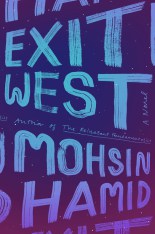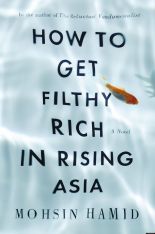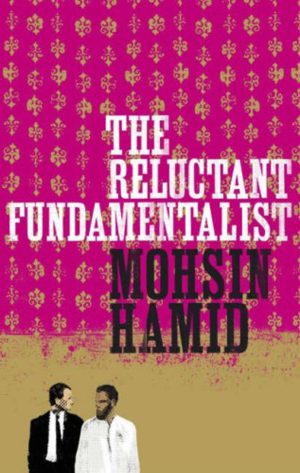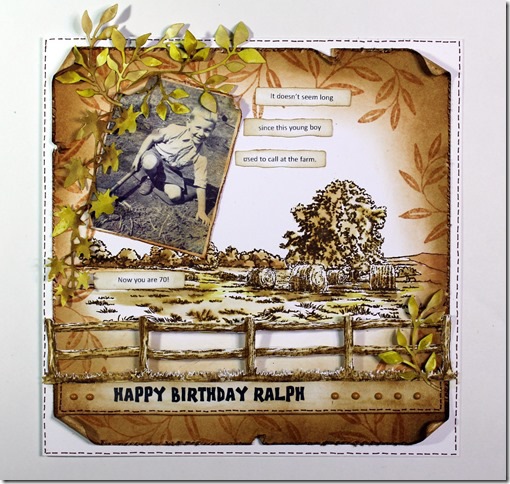“As a society, you were unwilling to reflect upon the shared pain that united you with those who attacked you. You retreated into myths of your own difference, assumptions of your own superiority. And you acted out these beliefs on the stage of the world, so that the entire planet was rocked by the repercussions of your tantrums, not least my family, now facing war thousands of miles away.”
– Mohsin Hamid, The Reluctant Fundamentalist





Mohsin Hamid is one of those rare authors whose books are so good, that I read all of them in the span of a few months. I like that he writes short books, because they are fast reads, but that does not mean they do not pack any less of a punch. What I love about his writing is that each book is deceiving in what it’s about. I mean, yes, The Reluctant Fundamentalist is about two strangers having lunch while one of them relates his life story, but it is also about the tensions felt after 9/11 and the buried (or not so quite buried?) animosity between America and Pakistan. Or Exit West, which is hailed as a magical realism story about two lovers, but is really about the trials of refugees as well as the repercussions of globalization. I’m sorry, I don’t want to get ahead of myself, so let’s jump in.
The first Mohsin Hamid novel I read this year was The Reluctant Fundamentalist. This is by far my favorite work of his. The narrative is told in second and first person, an unnamed man in Lahore is recounting his life to a stranger and he calls the stranger you, so the reader becomes part of the novel. He tells of his life in America as a young man up until the events of 9/11 and the consequences of being Pakistani in America afterward. It is both unsettling and gripping, the story mainly focusing on his relationship with a white woman and his rise in a firm that values companies, but becoming so much more tense as he starts to talk about the feeling in America after 9/11. The ending left me feeling anxious and uneasy, because the man walks a fine line between Muslim and fundamentalist. We are left to wonder which one claimed him. I appreciated the brutal honesty about Americans following 9/11 and the attitudes toward Muslims that were (and are) completely grown out of the contagion of fear and hysteria. It is a fast read, and well worth the afternoon to sit down and read it.
I read Exit West next, his latest novel. This is a magical realism story about two lovers who find themselves in a war torn unnamed country, seeking refuge somewhere else. There are “doors” that pop up in the world and if they are so lucky, will take them somewhere far away from the war. It chronicles the difficulties of a new couple trying to cope with being removed from their home and discovering what their relationship is at the same time. It is not easy to be unsure of your relationship while struggling to find a place to stay, food to eat, and money to make in countries that do not always welcome foreigners. It is also so much more than this; relevantly poignant in this time of the world where refugees are abundant and there are minimal places for them to go. The portrayal of the ambivalence citizens in these countries have towards the refugees is very real, making the story hard to read at times. The influence of globalization in diluting or re-inforcing some of the refugee’s cultural heritage is a subtle but interesting plot point; reading about a diverse mix of cultures all blending together in order to survive or cultures seeking out their native peoples even in strange lands to strengthen their bonds was riveting. The role this also plays in the couple’s relationship is equally intriguing. This was also a quick read, and something I highly recommend, though the marketing of magical realism is not quite accurate, since it does not play a huge part in the actual point of the novel and therefore, should not have high expectations.
I immediately read Discontent and Its Civilizations: Dispatches from Lahore, New York, and London right away. This is Hamid’s non-fiction collection of essays from numerous publications in other magazines. If you know me, you know I love essay collections. Reading author’s views and memories in a collection is a great way to get to know why they write fiction the way they do. I really enjoyed it as well. It encompasses some essays about his childhood, his time in America, and his views on politics. It was published in 2014, and I have to say, I wish it had been published after the election of 2016. I would have found his opinions on the Trump presidency very interesting, but that is a mute matter. I don’t have much to say about this one, except that it only increased my appreciation for his writing and would recommend it for some educational essays on political matters that are still very relevant.
Next came How to Get Filthy Rich in Rising Asia, which I’m sorry to say I enjoyed less than his other novels. That’s not to say I didn’t like it, it just gripped me less than the first two I read. This is also written in second person, making you, the reader, the main character of sorts. It presents itself as a self-help book for, as the title suggests, how to get filthy rich in rising Asia. The narrator is talking to you, the reader, but tells the story of a man who rises from the rural areas of somewhere in what we assume to be the Middle East. Each chapter highlights a different piece of advice and tells the concurrent story of the man in how this advice plays out for him. It is a slightly depressing novel, but despite the distanced look at the main character, I grew quite attached to both him and his love interest. I feel it is a realistic portrayal of how many successful men become successful men, whether or not it is in rising Asia. Another short novel that would only take an afternoon to read, which I recommend as well.
And finally, I read Moth Smoke. What’s funny is, I didn’t realize I had read his first novel last, but there was nothing I could do to take it back. What I did notice was how his writing has progressed since this first novel. While I do like the writing of Moth Smoke, I feel Hamid’s later novels are superior because of their haunting tone, while this one reads more mainstream. Moth Smoke is about our main character, Daru, who loses his job at the bank and has to deal with unemployment in a country who’s economy has dropped and are testing nuclear bombs, and falling in love with his best friend’s wife, culminating in an affair. The novel switches back and forth between Daru in the past and secondary characters in the future as they give their impressions of Daru to the police, as the main character has been accused of murder. None of this is a spoiler, by the way, it’s all on the back cover. The only part of this book I really enjoyed was two secondary characters, Mumtaz, with whom he has an affair, and Manucci, who is his servant. They were both very complex characters and I wish the story had been about them, because I feel they had more of a story to tell than Daru did. I won’t pretend to understand everything about this book, because I know it was more about the society of Lahore and the politics of the time it was written, but a more knowledgeable person could probably tell you better than I. I just found it hard to get through, despite the plot being quite dramatic. I love books with unlikeable characters, but this one was just not written in a way that made me want to fly through it.
All in all, I highly enjoyed all of Mohsin Hamid’s writing, and it gave me a clearer view of the history and society of Pakistan than what I knew before. I understand the country slightly more than I previously had. I would recommend his books if you want something shorter, but still impressionable because they did make me think long after I had put them down.
Advertisements Share this:




